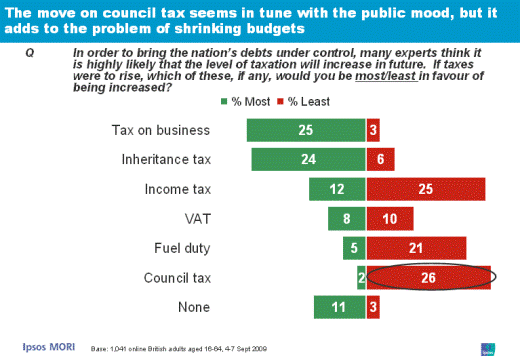Big Society: what of the new localism bill?
We've been waiting with bated breath for the new Localism Bill, finally published on Monday, 13 December. Not a lot of surprises in there - we've known for some time of the desire of Eric Pickles and co. to "fundamentally shake up the balance of power in this country". The Bill is ambitious and wide ranging, not least because of the inherent challenges it poses to local authorities at a time when they are facing a big financial squeeze - the Bill has been published alongside a very tough160financial settlement for local government. The events of yesterday remind us of just how challenging the next few years will be for the sector. The public are anxious about what will happen to frontline services and to the country's most vulnerable in this harsh economic climate, and it will be local authorities that will have to make the tough and unpopular decisions going forward - and this is against a backdrop of already declining public satisfaction with how they perform (2008/09 Place Survey analysis shows that, with the exception of inner London, few councils are well regarded by their residents). The Bill advocates localism and more power to communities to determine their own destiny. A key strand of this is the proposed referenda which will enable local people to decide on issues from local planning to city mayors. All very well in principle, but - quite apart from how these will be funded or resourced - it will be interesting to see whether such a tool will really help to secure the best possible outcomes for a local area. Take the proposed referenda on council tax. Ipsos polling shows that, generally speaking, council tax is one of the taxes that people are least in favour of being increased. This is supported by our work at the local level too, which shows a public concerned about value for money and high council tax levels (2008/09 Place Survey analysis shows that just one third of residents agree they get value for money from their council).160

But, when it comes to a council's decision about whether to raise council tax or not, the public's views need to be seen in context. For example, our research shows that a significant majority of the public don't know how council tax works, or indeed how the council spends its money - a160poll of Londoners illustrates the confusion amongst the public about what councils actually do. While most people know councils are responsible for picking up their rubbish (97%), local authorities are thought to be accountable for the local hospital and policing by significant proportions too (by 45% and 49% respectively). Qualitative research with local residents also points to a lack of understanding about just how many services local authorities are responsible for delivering. When we consider that councils' remits are to expand even further - take their new public health role, for example - it is clear to see that many people simply (but, quite understandably) don't appreciate the pressures local authorities face. Further still, there is a lack of awareness about the relatively small contribution council tax makes to the financing of local services, given c. 70% of a local authority's budget comes from central government. Given this is to be cut by an average of 27% over the next four years, councils really do face a very tough time. Ultimately then, how can we expect the public to make an informed decision - the right decision - about something so complex? In the budget-setting and service prioritisation workshops we run for a range of local authorities across the country, what we consistently find is that at the start of any session residents are cynical and confused about the council and are frequently against any rise in council tax. But, by the end of the session - once clearer about what the council does and how funding (including local taxes) works - they can often feel quite different, frequently advocating a rise in council tax. And while many will still feel strongly about freezing (or even reducing) council tax, at least they have reached their decision in an informed way. Putting power in the hands of local people is a good thing. But, determining the future of our local towns and cities through blunt tools like referenda, and about issues we know to be complex and multi-dimensional, seems to risk ignoring the sensitivity and consideration with which such decisions need to be made - and may make councils' ability to steer a clear course through these choppy times all the more difficult.160 160



